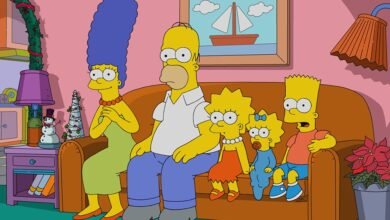Why Ignorance Is Bliss for Documentary Filmmaker Nicolas Philibert

Ignorance is bliss, according to Nicolas Philibert, director of BAFTA nominee “To Be and to Have” and Berlin best film winner “On the Adamant,” discussing his approach to documentary filmmaking at IDFA in Amsterdam.
The French filmmaker, whose recent films “The Typewriter and Other Headaches” and “Averroès & Rosa Parks” both screen at IDFA this year, said that “when your intention is too visible, when it is strongly accented, then it is the enemy,” which is a reference to a quote by actor-director André S. Labarthe.
He added, “Maybe it is why I prepare as little as possible. The less I know in advance about the subject, the better, I feel. I’m not the guy who prepares a lot. The research is making the film itself. I make my films from my ignorance. My films are fuelled by my ignorance, my curiosity, my longing, my fear – all of that. If I know too much in advance, I don’t want to make the film anymore, because I make films to learn.”
Philibert told interviewer Neil Young that sometimes he doesn’t know how a film will start until he is editing the footage. Such was the case with “To Be and to Have,” a film about a teacher and the children he teaches, which was named best documentary at the European Film Awards. Philibert said sometimes he works backward: he knows how the film will end and then works his way back, in the editing process, to the beginning.
For “To Be and to Have,” he wanted the opening sequence to contrast the worlds of nature and culture, represented by a shot of cattle in a snowy landscape and the calm interior of a school classroom with a globe sitting on the floor, “a place where the social aspects of life are in play,” he said, referring to schools’ role in the socialization of children.
“To Be and to Have”
Courtesy of Les Films d’Ici
Despite the film’s success, it didn’t change anything for Philibert, which was just as well. “I continued working in the way I like best, closest to my desire, my conscience, necessity as well, and the next film [‘Return to Normandy’] really didn’t do so well financially. But that was all to the good as it put things in perspective. It stopped me from getting too big for my boots.”
Philibert doesn’t distinguish between narrative filmmaking and directing documentaries. “Everything is fiction. For me, documentary is another way to make fiction. Why do I say so? Because as soon as you put a camera somewhere, you interpret reality. A documentary is never a copy of reality, but an interpretation. You reveal the truth.”
Philibert pushed back at Young’s suggestion that his characters tended to be “endearing” and “nice.” “I’m not really filming people to show them as endearing. That’s not what I’m looking for. What is important is I want to show them in their dignity and that’s different.” Referring to a quotation by writer and director Jean-Louis Comolli, he said, “The political dimension of film is to make the dignity felt between the screen and the [screening] room.”

“On the Adamant”
Courtesy of TS Productions
One difference between fiction and documentaries is that the director has a duty towards the people in the film because they are “imprisoned in an image,” Young said, quoting Philibert. The director responded, “I film you and you are locked in space and time. As a filmmaker, I feel I have a responsibility because when you have a camera in your hands you have a certain power, and one of the questions is how not to abuse the power the camera gives you when you film somebody in a psychiatric hospital [the setting for ‘Averroès & Rosa Parks’] or any place. Every person has to be respected. Making a documentary consists of pushing people from the shadow to the light, and when the film is finished these people go back to their everyday life – to the shadow, in a way. So, what do you leave them? It is an ethical question.”
Philibert added that sometimes it was best not to film. “There is a temptation to push open doors, film spectacle, but I respect the privacy of people’s personal lives. I know the world seems limitless – we only need to look at social media – but I feel one does need to know when not to film – leave something lacking, leave emptiness, leave something for the viewer as a thinking individual to reflect on what is shown and what is not shown – you know, leave something for the longing as well.”
He said: “Today’s world is flooded with images, and I think cinema – which is an art based on images par excellence, in contrast with television, Facebook etc. – has to resist this [flood of images].”

“Averroès & Rosa Parks”
Courtesy of Les Films du Losange
He reflected on his dedication to cinema, and his tendency to limit his output. “What I do is I stay close to what is necessary. I can go without making a film for two years,” he said.
“What is important for me about cinema is meeting others, meeting the world. The world we live in nowadays can be frightening, can be difficult, violent, scary, and meeting the world through cinema helps me understand the world around me, to understand myself also a bit better through others, and that is what is important.”
Discussing his film “Nénette” – about a 40-year-old orangutan, Nénette, shut behind glass in a zoo – he said, “It is a film about what is looking. Looking is always projection. It is a metaphor for cinema because in a screening room when we watch a film all together, we see the same film but each of us sees a different film [based on our background]. Nénette is a screen. The humans we hear in the film talk about her and comment about what they see but they speak about themselves in a way. It reminds me of a phrase from Gustave Flaubert: ‘Madame Bovary, that’s me.’ Nénette, that’s me, that’s you, that’s us.”

“Nenette”
Courtesy of Les Films d’Ici
Young suggested that “Nénette” was about communication and that this was also true of Philibert’s other films, but the filmmaker said that rather than communication his interest was in language. “To me, words are very precious, and I’m really attached to that. They are essential. It is not very fashionable these days, in documentary either. Words seem to be left aside. There is very little true exchange. There is no room for words that are meandering, that are trying to find themselves, or to be found. Everything seems to be formatted and interrupted all the time. When there is a television debate, shots hardly last longer than two seconds. So, there is no room for the words that are trying to find themselves.
“Truffaut used to say films breathe through their faults. It is true for me that we can see fragile films – not perfect – that can be sometimes deeply moving, touching.”
Source link



